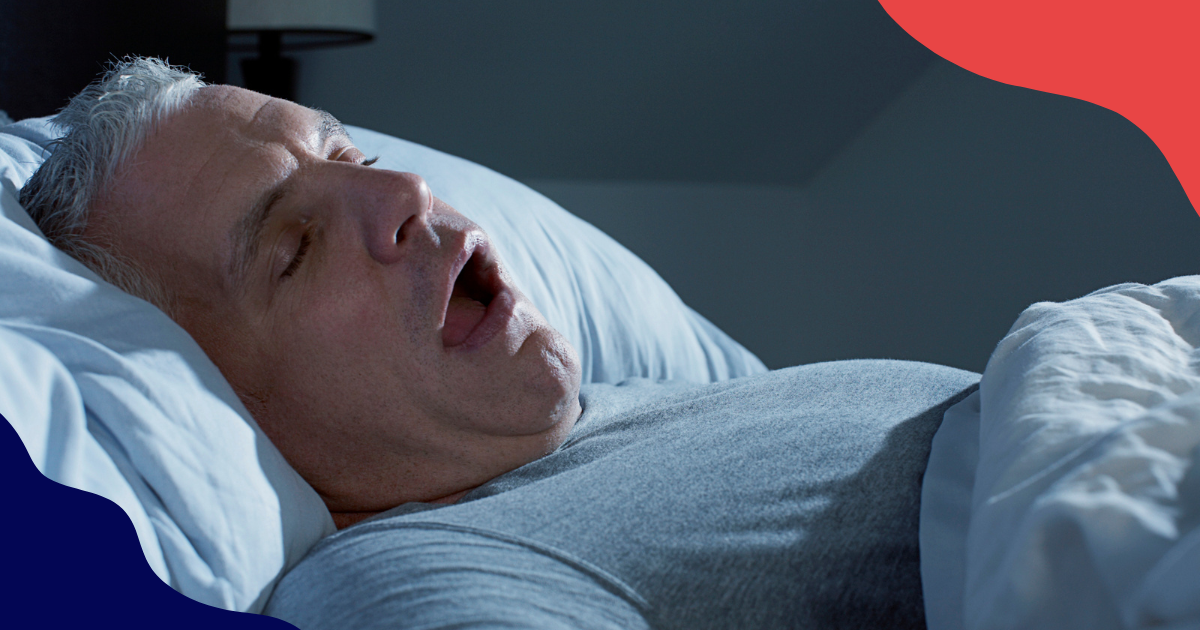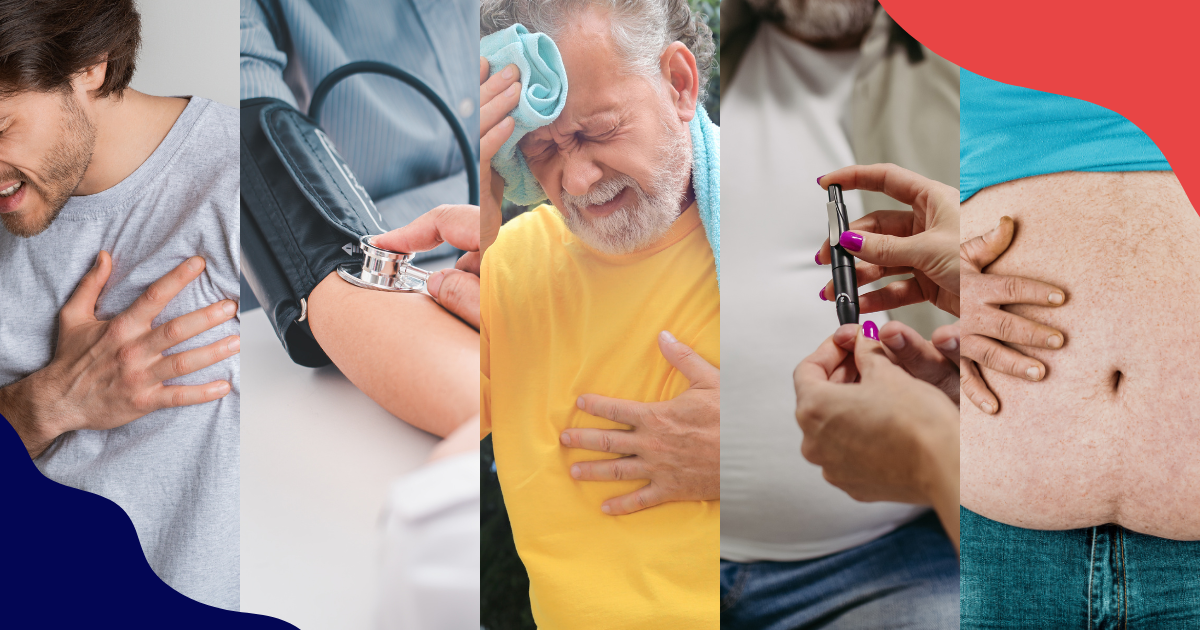Having high levels of cholesterol in your blood can pose serious health issues. Data released by the World Health Organization showed that high cholesterol causes around 2.6 million deaths per year. Can high cholesterol cause erectile dysfunction? Yes, it can. High cholesterol can contribute to erectile dysfunction. In this article, we will tell you more about the negative health effects of high cholesterol and how it can contribute to erectile dysfunction or ED. We will also give you some tips on how to prevent erectile dysfunction due to high cholesterol so you don’t have to suffer this sexual dysfunction.
What causes high cholesterol?
High cholesterol can be because of lifestyle and other medical conditions. Let’s look at some of these factors that might make you more prone to high cholesterol.
- Smoking – smoking and the use of tobacco can lead to lower levels of what we call “good cholesterol” or HDL. Smoking also causes a rise in your body’s “bad cholesterol” or LDL levels.
- Alcohol – drinking too much alcohol can result in high cholesterol levels. Your liver breaks down alcohol when it reaches the liver. This broken-down alcohol then turns into cholesterol and triglycerides.
- Stress – chronic stress can trigger hormonal changes in the body which then raises cholesterol levels.
- Diet – While some foods can help lower cholesterol levels, others can raise your cholesterol. Whole grains, nuts, fruits and vegetables can help reduce your cholesterol level. Talk to your doctor about dietary changes that might help lower your cholesterol level.
- Sedentary lifestyle – you have a higher risk of high cholesterol if you spend most of your time sitting or lying down because your body won’t produce enough HDL or “good cholesterol”.
The connection between high cholesterol and erectile dysfunction
Will high cholesterol cause erectile dysfunction? Eventually, high cholesterol might cause erectile dysfunction because it:
Reduces blood flow
A healthy blood circulation is crucial to achieving good erections. When you have high cholesterol, fatty deposits build up in your arteries. These fatty deposits are called plaque. Over time, the accumulation of plaque causes blockages that make arteries harder and narrower. This build-up is called atherosclerosis. Narrow arteries make it harder for blood to flow through. This means that there will also be less blood flowing to your penis when you get aroused. As a result, you might not achieve an erection. During instances when you manage an erection, poor blood flow can result in poor quality of erection or an erection that is not as hard as the ones that you normally achieve. Another possibility is achieving an erection but not being able to sustain it throughout sexual intercourse.
Damages nerves and blood vessels
High cholesterol can damage the lining of your blood vessels. This lining is called the endothelium. When the endothelium gets damaged, it results in poor nitric oxide production. Nitric oxide is a gas molecule that helps with blood flow and blood pressure. Nitric oxide helps relax blood vessels so more blood can flow through them. Good blood flow means more blood reaching your penis and a healthier erection.
High cholesterol contributes to nerve damage. Aside from damaging blood vessels, plaque buildup caused by high cholesterol can compress and damage nerves. Although high cholesterol often damages peripheral nerves or those in your hands and feet, it can also damage the nerves in the pelvic region. Pelvic nerves are crucial to erections. When your pelvic nerves get damaged, you get less sensation in your pelvic region. You will also have less sensation in your penile area and have a more challenging time getting aroused and achieving an erection.
Causes hormonal imbalance
Although some studies suggest that there is no direct connection between high cholesterol and hormonal imbalance, some suggest that high cholesterol levels might influence testosterone levels. Testosterone is a hormone responsible for developing male characteristics, like increased muscle mass and bone density. Testosterone is responsible for the deep voice, which is common to most men. Testosterone is also responsible for regulating sex drive or libido. If your testosterone levels drop because of high cholesterol, you might have difficulty getting aroused during sexual intercourse. As a result, you might have a harder time achieving and maintaining an erection.
Causes other health conditions
High cholesterol can lead to other health issues that increase the risk of erectile dysfunction. It can also lead to hypertension or high blood pressure.
High blood pressure can damage the blood vessels, resulting in poor blood circulation and erectile dysfunction. Some antihypertensive medications can also cause ED.
High cholesterol is also common in men with cardiovascular disease and diabetes. These health conditions are risk factors for erectile dysfunction.
Does lowering cholesterol improve erectile dysfunction?
Yes, keeping your cholesterol level in check can help improve erectile function. By maintaining normal cholesterol levels, you can ensure a healthy blood flow to help you achieve and maintain erections. Here are some things you can do to ensure low cholesterol levels:
Heart-healthy diet
Watching what you eat can help you maintain healthy cholesterol levels. Start with nutrition. Include fibre-rich food in your diet. Beans, oats, fruits, lentils, and vegetables are rich in fibre and can help remove excess cholesterol. It is also important to eat more food rich in Omega-3s. Fish, walnuts, flaxseeds, and chia seeds are rich in Omega-3s and can lower triglycerides while improving heart health.
You should also avoid eating food with trans fats, like fried foods, margarine, and processed foods. These foods raise your bad cholesterol level.
Exercise
Exercising regularly can help burn fats and bring down your cholesterol level. Aim for at least 30 minutes of moderate exercise at least five times a week. Examples of moderate exercises include jogging, brisk walking, cycling and swimming.
Watch your weight
Getting rid of excess fat and body weight can help reduce cholesterol levels. Aside from regular exercise, controlling what and how much you eat can help you reduce weight.
Quit smoking
Smoking damages your blood vessels and lowers your good cholesterol. Upon quitting smoking, you will immediately experience an improvement in your blood circulation, cholesterol level, and lung health.
Limit alcohol intake
Excessive alcohol intake can raise your blood pressure. If you cannot quit drinking, drink moderately.
Manage stress
Cholesterol and erectile dysfunction are both affected by stress. Chronic stress causes a rise in blood pressure and cholesterol levels. Reduce stress levels by engaging in activities that bring you pleasure, such as taking up a hobby, watching a movie, going to the spa, or spending quality time with your family. You can also try yoga, meditation, and breathing exercises as these are proven ways to relieve stress.

Treating erectile dysfunction caused by high cholesterol
While there are no drugs that treat high cholesterol and erectile dysfunction at the same time, your best option to manage ED caused by high cholesterol is through custom medication.
Unlike over-the-counter (OTC) treatments that only address ED, custom treatments are designed to address a person’s comorbidities. Custom treatments are formulated to match the unique health profile of each patient. This means that the active ingredients, dosages, and delivery methods can be tailored for optimal results.
OTC remedies also often come with a “one-size-fits-all” approach, which may potentially lead to side effects. With custom treatments, ingredients resonate better with a patient’s health status, hence potentially minimizing any unwanted side effects.
If you want to take advantage of custom treatments, consult with Men’s Health Clinic (MHC) experts and book a FREE consultation. Our team can help provide the most appropriate custom treatment for your ED through a thorough health assessment.
Conclusion
Can high cholesterol cause erectile dysfunction? Yes, it can. High cholesterol can damage your nerves and blood vessels. It can also cause high blood pressure and hormonal imbalance. The good news is that cholesterol levels are easy to manage. Watching your weight, eating balanced meals, and exercising can do wonders in keeping your cholesterol level in check. Healthy lifestyle choices, like quitting smoking and drinking moderately, are also helpful in maintaining a healthy cholesterol level.
If you feel that your cholesterol level is affecting your sex life and causing your ED, see a licensed professional and book a FREE consultation with MHC. With the help of a medical professional, you can maintain your cholesterol level and keep your sexual functions running smoothly.




